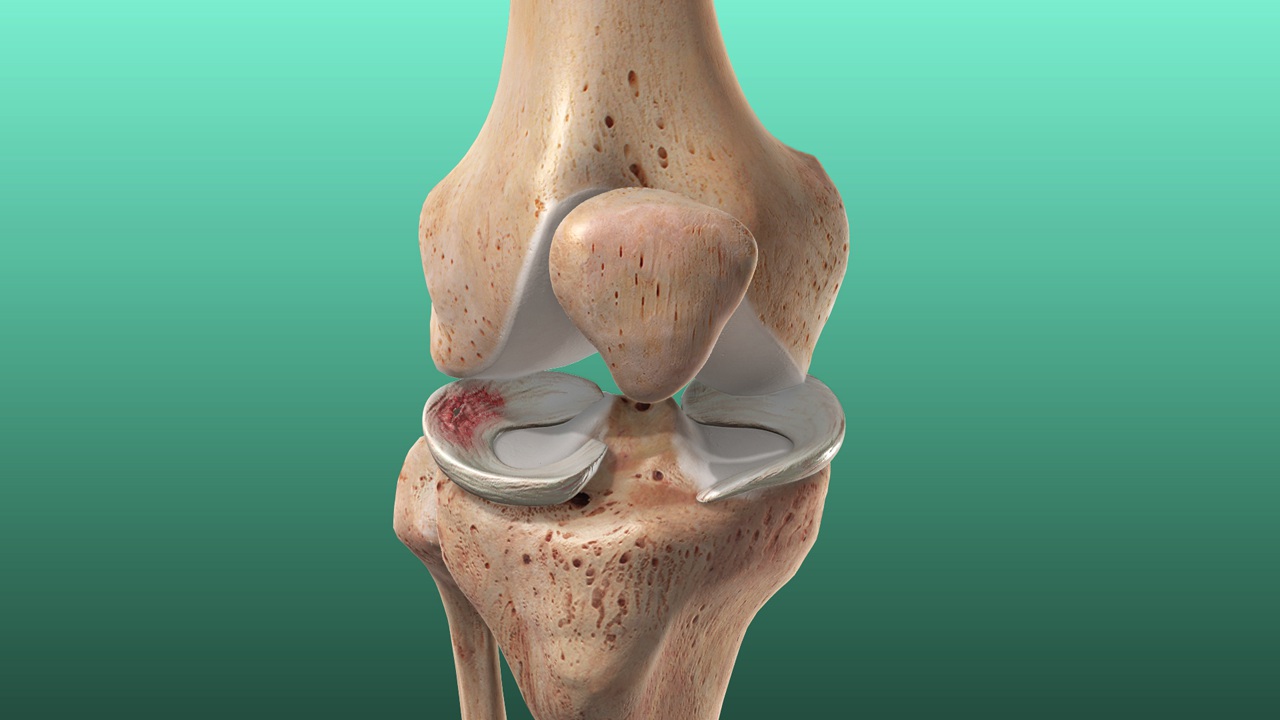The meniscus is a c-shaped pad of cartilage situated within the knee that serves as a shock absorber for the knee joint. Each knee has two menisci that lie between the femur and tibia, and meniscus tears are common knee injuries, especially among sports players.
The menisci also help stabilise the knee joint and keep knee movement smooth. Although meniscus tears are most common in sports players, it is also possible to get them through wear and tear as you age.
Meniscus tears are given different grades depending on how severe an injury is. For example, a sprained knee can involve the meniscus and other parts of the knee, such as the anterior cruciate ligament.
Younger people can sustain meniscus tears after twisting their knee while playing sports such as football or tennis etc. Older people can experience meniscus tears after the menisci become worn down and can be damaged by simply standing up. These are known as degenerative tears.
Occasionally the menisci can develop as a block or disk shape in children, which is called a discoid meniscus. A discoid meniscus is more likely to tear.
Symptoms of meniscus tears
Patients can report feeling a pop in their knee joint that indicates a problem. Some patients may still be able to walk on their injured knee but may find their knee stiffens over the next 48 hours. They may delay seeking help from their doctor until their knee causes pain.
Other symptoms of a meniscus tear can include:
- A feeling that the knee is locking, catching or clicking, usually when bending the knee
- An inability to flex and extend the knee fully
- Limping while walking
- Mild, severe or intermittent pain in the knee that comes and goes
- Swelling and inflammation of the knee, usually experienced a few hours after the meniscus injury
- The knee feels loose or unstable and about to give way
- The knee feels tender along the line of the joint
Are you a medical professional involved in patient assessment and treatment?
PDUK offers a Minor injury essentials Face to Face course, Accredited by the RCN Centre for Professional Accreditation. This fully interactive course focuses on the needs of community practitioners who are now expected to include basic injury review and care.
The course has been designed to help junior doctors, nurse practitioners, practice nurses, school nurses and allied health professionals to assess and manage minor injuries with greater skill and confidence.
Participants will get practical hands-on experience in a wide range of tasks, including:
- Apply history-taking essentials, thereby promoting safe practice.
- Link and apply anatomy of upper and lower body musculoskeletal (MSK) structures to various physical assessment techniques.
- Discuss appropriate management of common traumatic MSK presentations, including analgesia and supportive therapy principles.
- Examining and managing various types of wounds, including closure techniques and patient education.
- Develop competency in some standard basic minor clinical procedures.
Junior doctors, nurse practitioners, practice nurses, school nurses and allied health professionals may also be interested in participating in our Minor injury essentials Online workshop, which is Accredited by the RCN Centre for Professional Accreditation.
This three-day workshop in a virtual classroom covers many of the same skills as our face-to-face workshop. Participants get to focus on practical assessment and management of basic injuries. The workshop aims to enable participants to feel more confident in dealing with patients presenting with minor injuries.
By the end of the 3-day workshop, you will have gained knowledge in how to:
- Apply history-taking essentials, thereby promoting safe practice.
- Link and apply anatomy of upper and lower body musculoskeletal (MSK) structures to various physical assessment techniques.
- Discuss appropriate management of common traumatic MSK presentations, including analgesia and supportive therapy principles.
- Be able to examine and manage various types of wounds.





